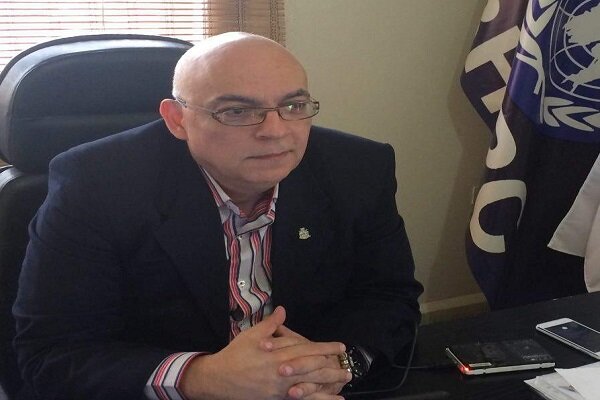Ottawa a heaven for Iranian fraudsters: HRC ambassador at large to West Asia

TEHRAN - Canada claims to defend human rights while it sold nearly 3 billion Canadian dollars worth of arms to Saudi Arabia in 2019 which are chiefly used to kill innocent Yemeni citizens, including women and children.
Canada's hypocrisy over human rights was also on full display during the so-called U.S. "maximum pressure" policy against Iran.
Over the past two years, Washington imposed harsh sanctions on Iran that are hampering Iran's access to medicine. At this time, Ottawa cooperated with Washington in pushing ahead with U.S. unilateral sanctions by refusing to sell humanitarian goods to Iran.
However, Canada is not really concerned about human rights when it clinches trade deals with a value of 15 billion dollars with Saudi Arabia.
In this regard, Haitham Abu Said, HRC ambassador at large to the Middle East (West Asia), tells the Tehran Times that the arms contract between Canada and Saudi Arabia in 2018 "consisted of 928 artillery vehicles and 119 vehicles carrying 30 mm cannon and 119 artillery personnel carriers and 105 mm guns."
Today, the global economic crisis remains the result of the search for a contract under the pretext of "good use," according to Abu Said.
Asked about motives why Canada persist in focusing on Iran but remaining silent when it comes to Israeli crimes against Palestinians, the Lebanese special envoy to the United Nations office in Geneva says everyone knows Western approaches to exploitation of rights in the American heartland "where we see double standards, especially with regard to the Israeli regime."
Canada is considered one of the main countries Israel relies on to escape responsibility for its crimes, but when it comes to, Ottawa resorts to every ploy to bring about a pretext against Iran and condemn it.
"There are electoral interests that affect this approach, in which the politicians in America are a hostage of the Zionist institutes who control most of the political and economic centers," Abu Said notes.
Unfortunately, we see international negligence, and that is why those countries turn a blind eye to this regime."
“A formality’
"Despite what we see in terms of discrepancies on some files between America and Canada, this matter remains a formality," the HRC ambassador at large points out.
"We believe that these differences are to give the impression that these countries respect the laws and work according to international norms far from any political bias."
He adds when it comes to taking a position, especially in the Security Council, “we see that they are pursuing an accent different from what is prevalent in the meetings and trying to reduce the impact of the resolutions in order not to embarrass the Israeli regime."
Noting that Ottawa has turned to heaven for Iranians wanted over economic corruption, Abu Said says this policy dates back to the first days of victory of the Islamic Revolution in Iran when Imam Khomeini toppled the Shah's regime.
"This was a slap in the face of Western superpowers, especially America and Canada," he maintains. "Western countries exploit opponents of the Iranian government and people who are accused of financial fraud to delude international public opinion and say that the Iranian people do not want the continuation of the current political system in Iran."
"They are trying to falsify the facts and say that they represent the country's intellectual majority that aspires to develop Iran and make it a model country like the West," Abu Said concludes.
